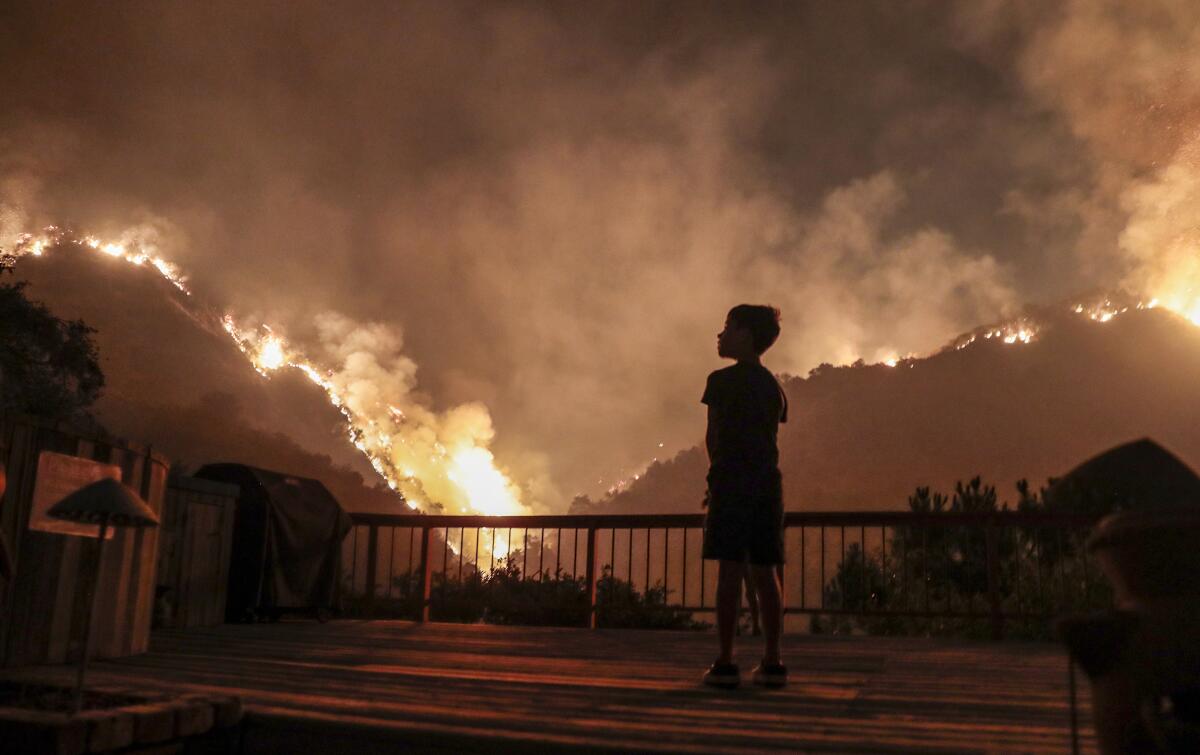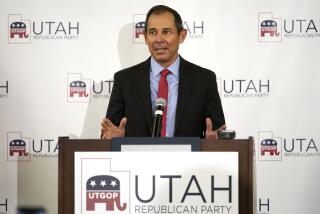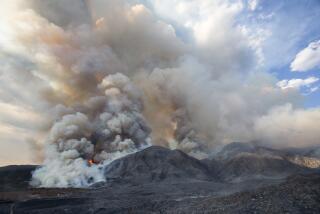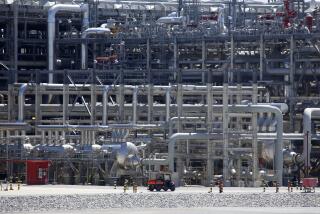Opinion: Where have all the climate change deniers gone?

In 2013, I unintentionally touched off a journalistic controversy when, in a short piece on counterfactual letters to the editor, I mentioned that denying the existence of evidence for climate change was an example of the kind of factual inaccuracies I try to keep off the page. A follow-up explaining my thinking as an editor on this drew more controversy. In many quarters at the time, climate change denial was considered a mainstream opinion occasionally worthy of print space.
Today, with the latest report by the United Nations Intergovernmental Panel on Climate Change warning that the window for humanity to decarbonize is rapidly closing, there is scarcely any disagreement among our letter writers about the reality of global warming. Even politicians notorious for their previous rhetoric and actions on climate change are now expressing agreement with the science, if not the need for society to do much about the problem.
Since the IPCC report was released Monday, our readers have expressed everything from despair to resolve to curb climate change. Letters denying the science still trickle in, but this isn’t anything like 2013.
——————————————
To the editor: The Times’ Aug. 9 editorial on the U.N. climate report focuses on world leaders and their policies. But as one reader wrote in response to an earlier editorial on President Biden’s electric vehicle push, “Industrial policy is a fool’s errand.... Tastes, incomes and production costs determine what gets bought and sold.”
If that’s the case, then let’s change our tastes, incomes and production costs.
As consumers we can stop buying stuff we don’t need. As manufacturers we can choose not to be overcompensated. We can use the savings in executive salaries to ease production costs and boost the incomes of frontline workers, who could then afford to buy stuff they do need. We can embrace a simpler lifestyle that places less of a burden on the planet.
None of this requires government regulation or policy. What it requires is looking around and asking, whether it’s stuff or money, do I need all this?
Mary Bomba, Los Angeles
..
To the editor: Even as The Times’ pages fill with scientific warnings about how quickly we must act to avoid the worst of global warming, a Bloomberg article on your Business pages tells us that U.S. carbon emissions will surge this year. The economy is springing back and fossil fuel use is increasing.
The market prices of coal, oil and natural gas in no way reflect the catastrophic effects they are having on our planet. This is why “business as usual” cannot be allowed to continue. Putting a rapidly escalating tax on carbon is essential to rendering fossil fuels less and less attractive economically. That in turn will accelerate the adoption of alternatives.
New fossil fuel exploration should cease now. Clean-energy infrastructure must be placed on a war footing. Conservation, forestation and many other solutions clamor for implementation. And poor nations must be helped by rich ones.
It is high time for the world, led by the U.S., to accept we are all in the same boat that will founder unless we get serious.
Grace Bertalot, Anaheim
..
To the editor: I do not accept the idea that our response to climate change will fail as it has with the pandemic.
Reducing greenhouse gasses does not rely on micro-level decisions made by individuals. Rather, it depends on the macro policies put in place by government. Placing a substantial price on carbon at its source is the best way to significantly impact global temperatures.
For inspiration, we can look back on the 1980s. It was then that the world became aware of the enlarging hole in the atmosphere’s ozone layer, created by the use of chlorofluorocarbons (CFCs) in aerosol products, refrigeration and air conditioning.
Though initially skeptical about the need for government intervention, President Reagan listened to the science and, ultimately, signed onto the Montreal Protocol of 1987, a global treaty to phase out CFCs. Reagan realized that government needed to quickly address this emergency and, consequently, incentivize the production of CFC-free products.
Likewise, private citizens alone cannot solve climate change. Our environmental story will not echo our COVID-19 tragedy if government does what it is meant to do: Act in big ways to solve big problems.
Sarah Freifeld, Valencia
..
To the editor: Our beautiful and wondrous planet will undoubtedly regenerate itself and go on with or without humans. What is truly threatened or may need saving right now is humanity.
Perhaps natural selection is already playing out. When the human animal does nothing to protect its young by refusing vaccination, consumes products it does not need, flies in planes and goes on cruises and burns fossil fuels while the very life systems that support it are contaminated and altered by its activities, what else are we to conclude?
It would have been nice if humans could have heeded the wake-up call that was COVID-19. It is beyond sad that we are taking many non-human animals and plants down with us in the mass extinction crisis that is happening right now.
But there is hope. Nature bats last.
Gina Ortiz, Claremont
..
To the editor: In 1968, I went to a movie theater and watched a blockbuster science fiction movie. The shocking twist ending, that we had destroyed our planet, brought the character played by Charlton Heston to his knees in horror.
Today, my horror is that “Planet of the Apes” was not necessarily science fiction.
Shelby Popham, Los Angeles
More to Read
A cure for the common opinion
Get thought-provoking perspectives with our weekly newsletter.
You may occasionally receive promotional content from the Los Angeles Times.







